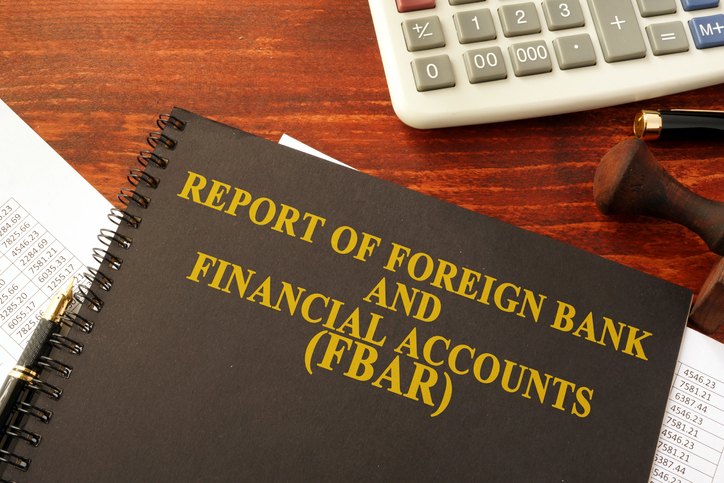Many US taxpayers still have questions regarding offshore accounts and FBAR filing requirements and compliance.
Is there a genuine risk their activities (or lack of compliance) will come to light? The definition of a US taxpayer includes all US citizens, as well as those who work or live within the borders of the United States and its territories for more than six months and one day during any calendar or tax year.
What is an FBAR? FBAR stands for the Report of Foreign Bank Accounts and refers to Form FinCEN 114.US taxpayers are required to electronically file an FBAR with the US Financial Crimes Enforcement Network or FinCEN (a bureau of US Treasury) if they have more than $10,000 in any or all of their aggregated offshore bank, investment or financial accounts at any time in the year – even for a single day.
There are two central questions associated with IRS FBAR compliance:
- “I’m a small fish; how will the IRS ever find out about me?”
- “What is willfulness versus non-willfulness and how will that affect my choices regarding coming into compliance with offshore accounts and FBAR filing requirements and Compliance?”
How will the IRS find out about your offshore activities? The vast majority of the world’s banks and financial institutions have agreed to provide detailed information directly to the IRS (as part of FATCA).
Your own bank, investment house, Foreign Financial Institution (FFI), retirement, pension, or foreign tax agency electronically submits all information about you as a US taxpayer and the offshore accounts and transactions associated with you. This information has been coming into the IRS for several years.
For many years, the IRS simply did not have the human resources to go through all of this information and compare it to the returns of US taxpayers. The IRS received additional funding a few years ago, much of which they have invested in substantially advanced computing systems and the development of Artificial Intelligence (AI) applications. The combination of AI and advanced data processing systems allows the IRS to flag all offshore accounts and associated identifiers (i.e., your social security number). From that point, the systems compare the information received with your tax returns, and if an account or accounts are missing, the system can flag your return for audit. It’s only a matter of time.
The process of coming into compliance with offshore accounts and FBAR filing requirements also requires an understanding of the issue of “willfulness” versus “non-willfulness.” The concept of intent is essential when determining the program you will select to come into compliance with IRS FBAR reporting. Two programs are offered by the IRS: the Offshore Voluntary Disclosure Program (OVDP) and the Streamlined Procedures.
The decision between the two programs is based upon the taxpayer’s perceived intent regarding the failure to disclose offshore accounts and/or income, as well as associated penalties and the potential risks of criminal liability.
Some US taxpayers may consider amending prior years’ returns in an effort to come into compliance without raising suspicions with the IRS. This is not the right choice for the majority of US taxpayers who are outside of FinCEN FBAR compliance and associated reporting of offshore accounts and income to the IRS. AI is watching for amended returns, and the changes themselves may target your return for a review or audit. The process of amending a return and sending it in is often referred to as a “Quiet Disclosure.”
A quiet disclosure does nothing to mitigate substantial financial risks, penalties, interest, and the remaining possibility of exposure to criminal tax evasion charges.
There are several risks and potential exposures for US taxpayers who are not presently in compliance with offshore accounts and FBAR filing requirements and compliance. It is important to discuss the matter with an experienced international tax attorney. We can help you understand your unique circumstances, potential risks or consequences you may face, and alternative strategies for resolving the matter, coming into compliance with FBAR reporting requirements, and submitting accurate IRS tax returns under one of the available programs.
We invite you to learn more about the integrated tax, legal, accounting and business consulting services of Allen Barron and contact us or call today to schedule a free consultation at 866-631-3470.





